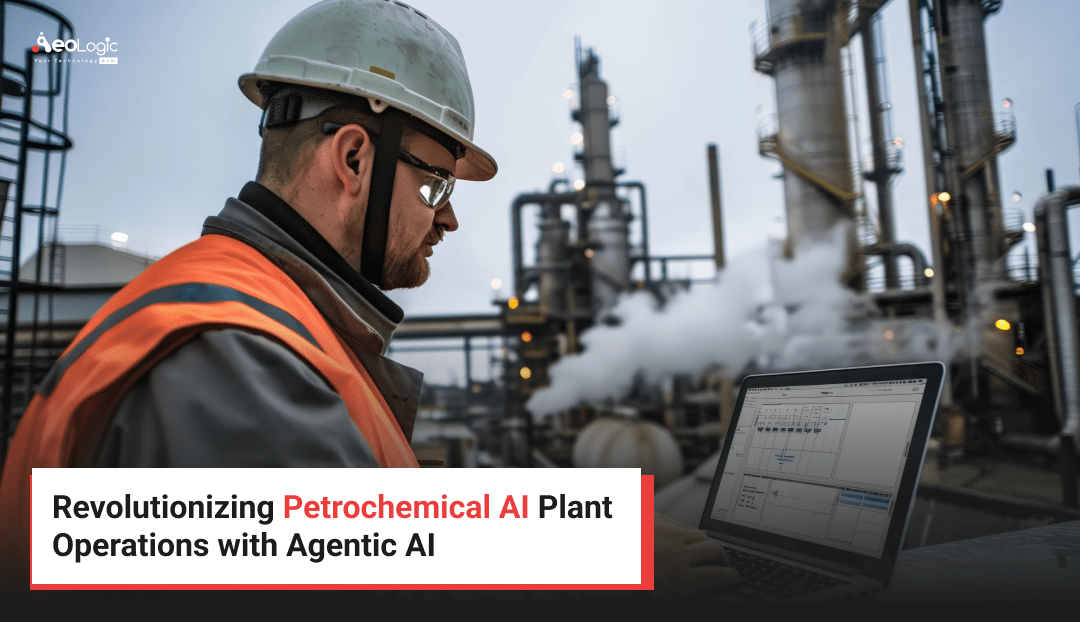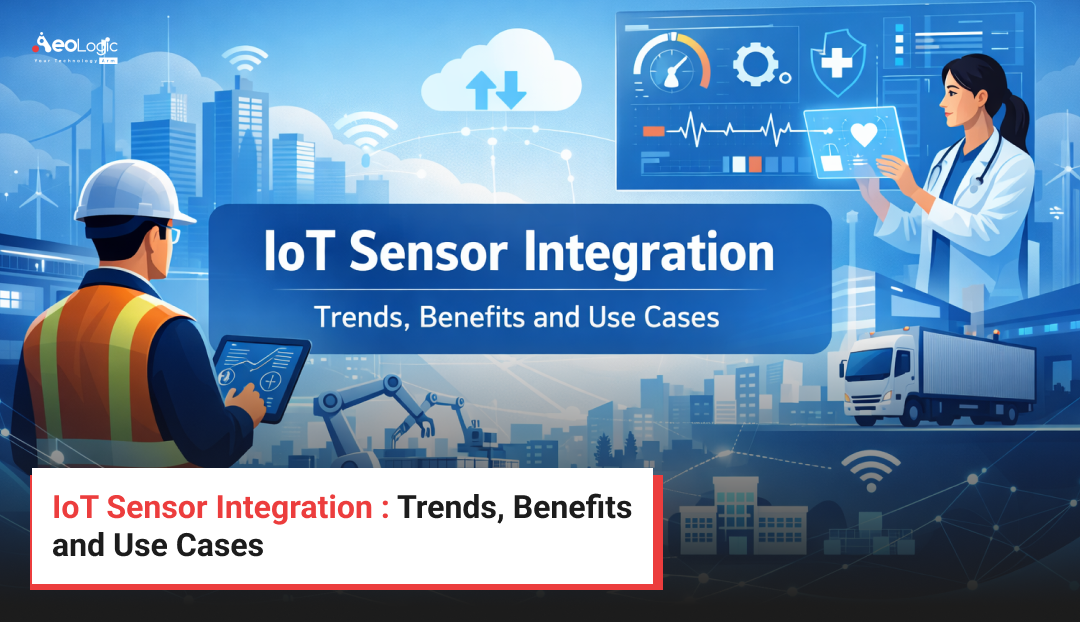The Petrochemical industry is located at the center of global industrialization. It manufactures the spinal cord of many areas- transport, construction, agriculture, consumer goods, pharmaceuticals, textiles, and more. Petrochemical almost allow every aspect of human life by producing our food to our food that package our food for medical devices and synthetic materials used in modern clothing. In short, they enable the infrastructure of the contemporary world. However, the operations and environmental complexity of Petrochemical AI plants creates one of the most soughting industrial environment to manage them.
Petrochemical AI operations include chemical reactions, high pressure equipment, dangerous materials and a complex web of energy-intensive processes. Plant operators require frequent safety, cost, efficiency, product quality and sometimes compliance with the stricter environmental regulations. It has been added to global supply chains, energy markets, ups and downs, aging infrastructure and increasing expectations for digital changes. In real time, the pressure to innovate, customize and optimize operations has never been high.
To meet these growing demands, the industry is rapidly turning to digital technologies – and Artificial Intelligence (AI) is emerging as a particularly transformative force. Traditional AI applications, such as future maintenance, process automation and discrepancy, are already helping to achieve increased improvement in productivity and safety. However, this digital evolution lies the next frontier agent in AI – an advanced form of AI that goes into autonomy beyond automation. Agent AI refers to intelligent agents capable of understanding its environment, decision making, decision making,
The Role of Agentic AI in Petrochemical AI Operations
Petrochemical AI features are among the most technically complex and operating demand environment in the modern industry. These giant ecosystems include chemical reactors, separation units, heat exchanges, compressors, turbines, pumps, pipelines and instrumentation systems – all of which must work tightly to ensure safety, efficiency and profitability. Managing this orchestration is a malignant work that requires real -time awareness, continuous adaptation and strategic foresight. Traditionally, this responsibility has fallen on a mixture of automated control systems and human inspection.
However, as demands on the industry intensifies, this model is proving insufficient to handle the level of necessary accountability and intelligence. This is the place where the agent comes in AI game.
Agent AI is different from traditional AI approaches in which it is beyond performing pre-program or statistical functions. It introduces software agents that are capable of working with a degree of autonomy that resembles human logic. These agents not only analyze data – they look at their environment, learn from it, make further plans, plan further, collaborate with other agents or systems, and take action towards defined goals. In Petrochemical operations, this functionality is transformative.
One of the most immediate benefits of agent AI is the ability to act as a dynamic coordination layer. In traditional Petrochemical plants, process adaptation is often offered through modeling and simulation, or through decision making on the basis of dashboard and major performance indicators (KPI) through control room operators. However, these methods are slow to adapt to real -time changes.
Role of Agentic AI in reducing operational risk
Another important role of agent AI is in reducing operational risk. Petrochemical processes are often sensitive to disturbance, polymorphic and sensitive. Small deviations may increase in safety events, unplanned downtime or quality damage. Agent AI systems are particularly proficient in pattern recognition and future stating analysis. They can detect micro anomalies in machinery vibrations, heat profiles, or chemical concentrations, before human operators will also see a problem. Once a risk is identified, the system can autonomally take corrective action – such as starting a shutdown protocol, restarting material flow, or informing the maintenance crew. These abilities not only improve safety and reduce the event response, but also support more active asset management.
Maintenance, in fact, is a domain where the agent AI can bring enough profit. Future -staging maintenance strategies already take advantage of machine learning to forecast equipment failure. However, agent AI takes it one step forward by embedding intelligent agents that actively manage the health of the tool fleet. These agents can coordinate inspections, prefer repair programs, and automatically trigger maintenance workflows in ERP or CMMS systems. For example, a centrifugal compressor, a centrifugal compressor showing the bearing signs, can be assigned a virtual agent that tracks its performance, corresponding to its behavior with similar tools in other plants, and recommends optimal time intervention at an optimal time to prevent autonomally unplanned failures.
Agentic AI supports energy efficiency
In addition, agentic AI supports energy efficiency – one of the major preferences in modern Petrochemical operations due to high energy intensity and increasing environmental rules.
From the perspective of a production plan, the agent AI can help balance several, often competition, purpose. Petrochemical AI plants often face trade-offs between maximizing throw puts, reducing costs, maintaining product quality, and compliance with safety and environmental standards. Traditional scheduling and optimization systems are not sufficient enough to continuously revaluate these variables. On the other hand, intelligent agents, can adapt multi-purpose near real time. For example, an agent may identify that the demand for a particular sub -product is increasing, and the process recommends changing the process parameters or feedstock allocation to increase the production of that product by reducing the impact on others. This type of intelligent trade-bounds is difficult to encoded in static rules-based systems, but are well suited to the argument of the agent.
Another region where agent AI is proving to be a game-changer is in operational flexibility. Modern Petrochemical markets are highly unstable, affected by the demand for global energy prices, disruption in supply chain and ups and downs. Plants require the ability to rapidly configure – whether by changing the production recipes, adjusting the capacity, or switching between feedstox. Agentic AI systems can simulate these changes using digital twins -physiological replications of physical property -and determine the optimal configuration under different obstacles. This simulation can be carried out concurrently in many variables and scenarios, which can lead to strategic decisions with very fast and high confidence.
Colleague human-masine interaction
Importantly, agent AI also promotes colleague human-masine interaction. Instead of replacing human operators, these systems increase them by handling the decision tasks to be repeated, by handling high-value insight and enhancing them by enabling more strategic focus.
Security and flexibility are also increased under an agent AI framework. With cyber hazards targeting significant infrastructure, intelligent agents can detect abnormal access patterns or data flow, separate compromised components, and start automated response protocols. In the scenarios of the failure of the equipment, the supply, or the supply of natural disasters, can re -configure the production chain to maintain agent continuity, ensuring that the major procedures are functional, ensuring that the major procedures are functional.
To effectively implement the agent AI, Petrochemical AI companies must invest in strong digital infrastructure. This includes modernization of their data architecture, integrating real-time data currents, deploying high-demonstration computing environment and adopting open standards for interoperability. Equally important is cultivating a multi -disciplinary talent pool, which specializes in AI, process engineering, control system and industrial IT. Organizational change management, cyber security governance and regulator compliance should also be considered in the roadmap.
Finally, the agent AI represents a paradigm change in the way of design, executing and optimizing the Petrochemical operation. By embedding intelligence on every layer of plant operations – equipment from health and energy management to safety and strategic plan – agentic systems create a new level of operational excellence. They actually offer a way to autonomous, self-reliance features that can thrive in an unstable, high-dose global environment. The role of agent AI is not only about the incremental benefits; This is about redefining the operating DNA of the Petrochemical AI industry for the digital age.
Major capabilities of agent AI in Petrochemical AI plants:
Real -time decision making: adjust operating parameters such as temperature, pressure and feedstock flow in real time depending on live data input.
Associate autonomy: Many AI agents work in coordination, which ensure customized plant-wide results.
Generative landscape simulation: Envisage and test alternative workflows before implementation.
Prescriptive Analytics: Go beyond predicting failures – apply and execute preventive activities.
Cross-system integration: Armyally communicate with SCADA, ERP, MES and supply chain software.
Agent AI capable operational reforms
Intelligent maintenance scheme the future mainstream is already the mainstream using AI, but the agent AI enables prescriptive and adaptive maintenance.
benefits:
- Reduce downtime with real -time asset diagnosis
- automate spare parts purchase based on risk prediction
- Priority to repair based on economic impact
Example: The Predix platform of GE integrates AI with industrial systems to provide real -time insights into turbine health.
Energy optimization and emission control Petrochemical plants are among the highest consumers of industrial energy.
With Agent AI:
- Adjust dynamic allocation dynamically based on demand and grid price
- Integrate renewable sources like solar and thermal
- Identify high-vomiting operations and re-configuration processes See: AI for AI
Procedure adaptation Agent AI can analyze thousands of process variables and:
- Search for new patterns and disabilities
- Adapt the yield and purity rates in catalyst reformers, distillation towers, etc.
- Customize recipes in real time based on feedstock variability
Use Kas: BASF feature in AI-A-A-AA-Abmented Desillation Control has increased by 8%.
Quality control automation Agentic AI took advantage of machine vision and statistical learning for strong QA:
- Continuous inline inspection with feedback loop
- Real time alert on out-of-spec production
- Dynamic recipe adjustment for material quality
Examples: Honeywell Forge uses AI to analyze the future in the Petrochemical packaging and detect the defect.
Benefits Breakdown: Why Invest in Agentic AI?
|
Benefit |
Description |
|
Efficiency |
Increase in throw put up to 20% with efficiency intelligent coordination |
|
Safety |
Safety reduced incident reaction time with autonomous risk mitigation |
|
Sustainability |
Stability adapts resource usage and reduction in emissions |
|
Cost Saving |
Cost savings reduction in maintenance and energy expenditure decreases significantly |
|
Agility |
Fizzly optimizes rapidly to the series or supply of market disruptions |
Deployment Strategies
To realize Agentic AI’s potential, companies must take a phased approach:
Digitize Operations: Install IOT sensor and make digital twins.
Data Strategy: Integrate silent data in a central, safe cloud or hybrid system.
Pilot Projects: Start with cases of high-ROI use such as energy management or pump monitoring.
Traine the workforce: AI agents to explain and supervise AI agents.
Evaluate the results: track ROI, downtime deficiency, and stability kPI.
Read: How to implement AI in process industries
Challenges and solutions
Promising, Agent AI also introduces new complications:
- Data quality and bias: garbage, garbage out. Ensure varied, clean training dataset.
- Cyber security risk: Apply strong, layered safety architecture.
- Cultural resistance: Use change management and cross-training programs.
- Over-autonomy: Maintain a human-in-loop protocol to avoid overlapping.
Frequently asked questions (FAQs)
What is the difference between traditional AI and Agentic AI?
Agentic AI systems can work autonomous with goals, feedback loops and adaptability-equality for warm-hearted agents-traditional AI often follows stable, pre-defined instructions.
Is the agent safe to use in high -risk environment like AI Petrochemical AI plants?
Yes, when human inspection and safety are combined with protocols. They increase security systems rather than changing.
Usually how much investment is necessary?
The cost varies from the size of the plant and the existing digital maturity but the pilot programs can begin with the mid-range budget and scale based on ROI.
Will the agent AI replace human workers?
No, it increases human decision making. Many new roles will emerge around system supervision, morality and adaptation.
Which companies are leading in this space?
Firms such as Siemens, GE, Honeywell, ABB and E -Espentac are actively developing agents AI platforms for Process Industries.
Conclusion
Agent AI is not just an increase – this is a change. By implementing intelligent, adaptive and collaborative AI agents, Petrochemical AI plants can reduce their environmental impact and improve dramatically protection, efficiency and profitability. This is not science fiction-the implementation of the world is already running. The agent AI is now the time to detect and invest. With the right strategy, training and technology stacks, Petrochemical companies can proof their operations in future and lead the next wave of industrial innovation.
With Aeologic Technologies as your trusted tech solution partner, you can leverage cutting-edge AI innovations to transform your contact center operations. The gen AI financial services are just beyond our imagination and have a brighter future than today. This not only improves the way of contact services but also introduces an innovation that is going to enhance the financial sector for a long time

9+ years experienced Software Engineer with a demonstrated history of working in the information technology and services industry. Skilled in iOS,Flutter, Software Development, Objective-C, Xcode, and Swift. Strong engineering professional graduated from UPTU.






